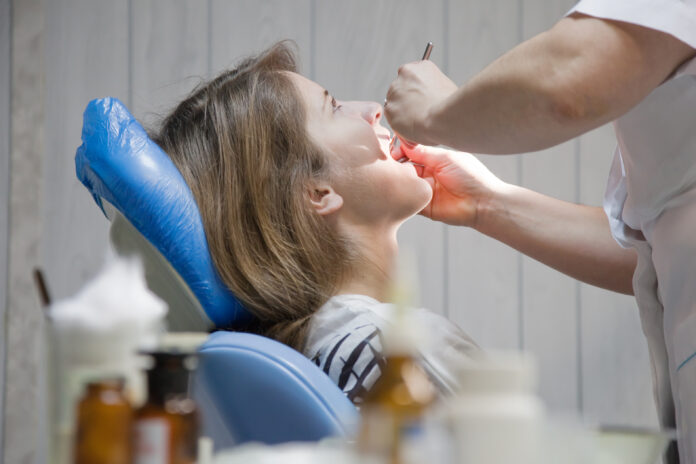Are you someone who brushes their teeth only once a day and sometimes not at all? Do you not visit your dentist periodically to ensure healthy oral conditions? If you are someone who doesn’t care about their oral hygiene as much as they should, you might become a victim of oral cancer. If this scares you, keep reading to learn more about the link between poor oral health and oral cancer and the simplest way to prevent this situation.
Although oral health should be given similar attention as overall physical health, many people take it for granted. They wouldn’t perform the simplest tasks like brushing twice daily, flossing, and keeping their oral health hygienic. This ignorance today can lead to severe dental problems later, one of which is oral cancer. Constantly ignoring your oral health can attract bacteria, germs, and other problems to build a house in your mouth and host a party of problems. If you’re still confused about what constitutes poor oral hygiene and how you can overcome it, here’s a detailed guide for an in-depth understanding of the issue.
What signifies poor oral health?
Poor oral health comes to the surface when your mouth, jaws, and teeth are in the worst shape. You might be suffering from problems like periodontal diseases, cavities, and bad breath that don’t seem to go away. Frequently facing oral health issues can indicate underlying diseases, one of which is oral cancer. Further, a person who doesn’t care for their mouth and gums’ cleanliness is more susceptible to getting viruses, which may turn into mouth or throat cancer. Therefore, understanding the connection between poor oral health and oral cancer is crucial to understand and keep in mind to prevent such problems.
What is oral cancer?
Oral cancer is a condition of uncontrolled growth of body cells that invades and damages the surrounding body tissues. It can attack various parts of the mouth, including the throat, the floor of the mouth, cheeks, lips, tongue, and sinuses.
Oral cancer might show up as a lump in the throat or the affected area, which despite treatment, doesn’t go away. Improper diagnosis of the condition at the right time can even threaten a person’s existence, meaning it can even cause death. That is why visiting your dentist regularly is crucial to ensure no such lumps exist and other general problems receive accurate attention.
The link between poor oral hygiene and oral cancer
Various studies around the world have found that people with poor oral hygiene practices are more susceptible to falling prey to cancer than others. Further, in countries like India, chewing tobacco, combined with poor oral hygiene, has been causing the highest number of oral cancer patients.
Taking care of your oral health is crucial because the oral area is the primary site for respiratory, gastrointestinal, and communication. When good oral hygiene doesn’t happen, the integrity of oral health gets broken, leading to the onset of diseases like cancer.
People smoking tobacco and drinking alcohol are at an even higher risk, especially if they do not maintain hygiene. Therefore, simple oral health management practices, like brushing twice and visiting a dentist regularly, can prevent this problem.
Factors causing poor oral health
Some common factors leading to poor oral health are:
- Chewing tobacco
- Consuming alcohol
- Chewing areca nut
- Not visiting dentists frequently
- Immunocompromised status
- Low socio-economic status
- Lower education
Poor oral hygiene combined with metabolite in tobacco can lead to cancer-causing products. Similarly, its blend with alcohol produces aldehyde, aiding the carcinogenic potential.
Effect of oral cancer on the mouth
Whatever the reason for oral cancer to strive in your mouth, it can cause a significant deterioration in your oral health. Some ways it affects are as follows:
- Small lumps or sores in the early stages might grow.
- You may experience loose teeth or lose teeth.
- The power of gum gets affected by strongly holding on to the teeth.
- The bone tissue within the jawbone might get impacted.
- You may experience pain in the oral tissues or throat while chewing or swallowing.
- Not being able to chew can lead to malnourishment.
Practicing oral hygiene
All these facts show the significance of maintaining good oral hygiene. Along with frequent dentist visits and keeping a normal routine, people should:
- Avoid tobacco or tobacco products that may lead to gum loss, loosening teeth, and forming precancerous liaisons.
- Limiting alcohol consumption or avoiding it altogether can prevent the bad smell in the mouth, tar-burdened teeth, and a higher possibility of bleeding gums.
Bottom Line
You may not know when the growth of abnormal cells in your mouth rises, especially when you do not practice good oral hygiene. Therefore, consider visiting a dentist once every six months and brush and floss properly in your routine to keep the risk of developing oral cancer at bay.















